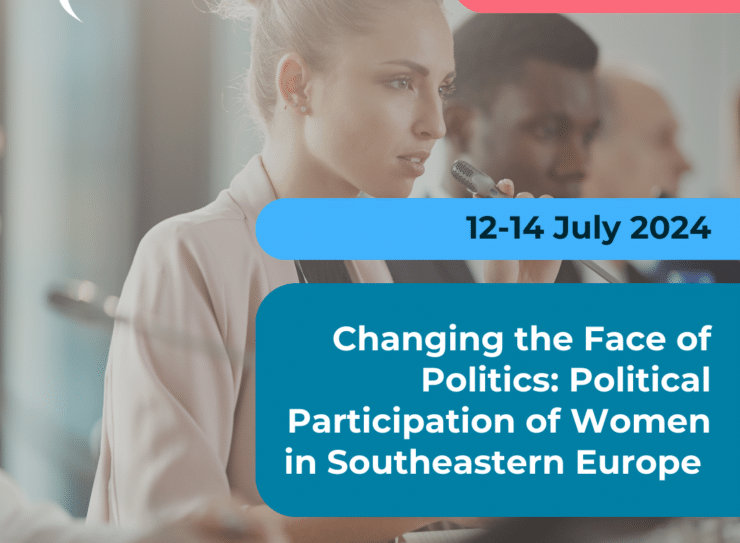12 Jul 2024 - 14 Jul 2024
Shëngjin
NDI Regional Political Integrity Program for Southeastern Europe

Gender equality is central to EU membership and accession treaties. Nonetheless, women in political life in SEE face many obstacles, including gender-based discrimination and stifling traditional gender roles. Women are politically underrepresented in all SEE countries and in all decision-making bodies. Women from ethnic minority groups, as well as LGBTQI+ communities, face further marginalisation and exclusion.
Women in Southeastern Europe (SEE) remain significantly underrepresented at all levels of political decision-making. There are numerous barriers to women’s political participation in addition to a unique form of violence against women in public space, a phenomenon which is one of the major reasons women are discouraged from participating, especially in politics. While both men and women experience violence in politics, women are subjected to particular types of violence and intimidation that would rarely, if ever, happen to men.
Friday, July 12
Arrival of the participants
19.00 Dinner at the hotel restaurant
Saturday, July 13
9.00-09.30 Welcome remarks
09.30-11.00 Women’s Political Participation in Southeastern Europe-Beyond the Quota
Many are witnessing the rise of anti gender movements in the region and globally and sociologists argue that women have never been more present in political institutions, yet the societal position of women in general is deteriorating. Panelists will discuss the challenges and opportunities that women in political parties face, such as: increasing economic precarity; greater reliance on informal practices that reinforce male political dominance, a turn to traditional gender roles; inequities in access to online platforms, rise of political movements which don’t prioritize gender; and decreased public visibility of women.
11.00-11.30 Coffee break
11.30-13.00 Gender, Money and Politics
Over 70% of countries worldwide provide direct public funding to political parties. However, only 17% of countries have gender-targeted public funding to promote women’s political participation. In many countries, there have been efforts to address this inequality, including skills development, targeted fundraising campaigns in support of women candidates, and reforms to political financing laws. In this session, we will present the latest progress made in the region, featuring legislative changes in Montenegro, internal party-earmarked funding in Bosnia and Herzegovina, and research on gender, money, and elections from Albania.
13.00-14.00 Lunch
14.00-15.00 ‘Women Leading and Energising Anti-gender Action – What should involve the crux of action?
(Presenting the research on the position of women in progressively unequal societies. How does it affect women? What exactly is happening?)
15.00-16.00 Psychological violence-analysis and solutions
NDI’s research clearly indicates psychological violence to be the most prevalent form of violence against women in politics in Southeastern Europe. Given its insidious nature, it is the most difficult to prove or talk about, and it can range from subtle comments related to women’s competencies or physical appearance to a wide spectrum of behaviours such as the psychological phenomenon of gaslighting, making someone feel invisible, withholding information, conducting subtle smear campaigns, shaming, etc. Given its insidious nature, it is the most difficult to prove or talk about. The European Liberal Forum’s research on violence against women in politics indicates that online violence is on the rise, and Ola will present some conclusions and tools from ELF’s forthcoming publication.
16.00-16.30 Coffee break
16:30-18:00 Political Leadership of Women
During this session, participants will discuss the foundations of good management and recruitment and how to foster high-performing, inclusive, and happy teams that can support them in their political careers at all levels. Don’t worry—there will also be plenty of group work to discuss how you can develop your own management style and teams in a political environment.
19.00 Dinner
Sunday, July 14
09:00-11:00 Violence against women in politics – Turning Analysis into Action
11.00-11.30 Closure and Next Steps
12.00 Lunch and departure of participants